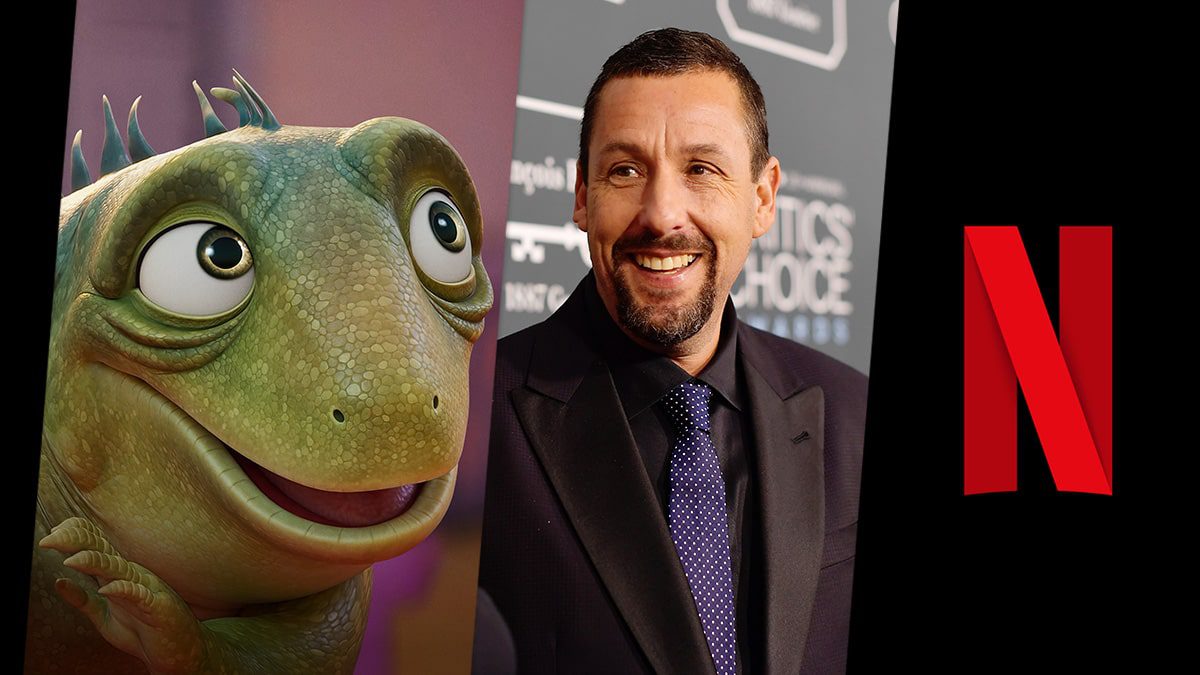In the animated film “Leo,” Adam Sandler reprises his iconic voice to portray a 74-year-old class lizard. The familiar gurgly baritone, known for its comedic impact on “Saturday Night Live,” attempts to infuse humor into a narrative where the aged reptile imparts life advice to eccentric fifth-graders. However, Sandler’s modern artistic approach takes center stage in this Netflix project, marked by stiff animation and awkward comedic moments. Even musical interludes featuring Sandler’s signature voice fail to impress.
“Leo” establishes self-awareness with a subtle adult edge, acknowledging early on its connection to E.B. White’s “Charlotte’s Web.” The storyline revolves around therapy, as the elderly lizard, Leo, reveals his ability to talk and imparts personalized advice to each student he visits. While the concept seems promising, the script by Sandler, Robert Smigel, and Paul Sado falls into predictability, treating Leo’s talking ability as a poorly kept secret. The film’s conflicts revolve around the eventual revelation that Leo’s popularity stems from his unique communication skills.
The narrative introduces a talking turtle named Squirtle, voiced by Bill Burr, who serves as a source of offhand urination jokes and opposes Leo’s therapeutic endeavors. Surprisingly, the film incorporates musical elements, but these sequences lack grandiosity, featuring short, sparsely arranged songs with minimal choreography. Despite attempting to compete with animated movies prioritizing soundtracks, “Leo” falls short due to noticeable corners cut in its musical production.
Occasionally, “Leo” exhibits energy through slapstick sequences and vibrant visuals, showcasing Leo flying through the air and interacting with other talking animals. However, the assembly line animation diminishes the overall viewing experience, with characters and settings lacking lifelike qualities. The film’s backgrounds are particularly uninspiring, and attempts at humor include awkward product placement and visual gags reminiscent of the Minions.
Despite the involvement of comedic talents, including TV Funhouse contributors, “Leo” struggles to deliver consistent humor. Bill Burr’s Squirtle humorously labels the events as an “E.T. scam,” adding a touch of amusement. However, the film’s literal approach to adult humor, such as a reference to “Mr. Skin,” may prove awkward for parents explaining it to their children.
While the advice Leo imparts may hold some value for the targeted fifth-grade audience, the film’s lazy attempt at charismatic sentimentality falls short. As the reviewer humorously references Roger’s sentiments on “Scooby-Doo,” acknowledging their limitations in evaluating the movie, it becomes clear that “Leo” may not be universally appealing.
Summary
“Leo” unfolds as an animated film featuring Adam Sandler as the voice of Leo, a 74-year-old class lizard with a distinctive and humorous tone. The storyline centers around Leo’s clandestine ability to talk and offer valuable life advice to a group of quirky fifth-graders. Despite the promising premise, the film takes a hit due to Sandler’s modern artistic approach, resulting in stiff animation, awkward comedic moments, and underwhelming musical interludes. As Leo embarks on therapeutic journeys with different students, the script leans into predictability, treating Leo’s talking ability as a poorly kept secret.













